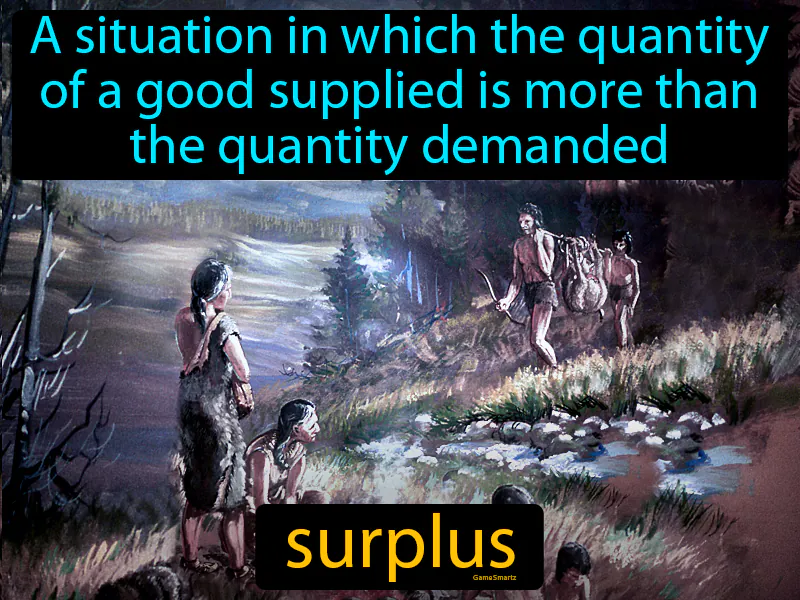Surplus
Surplus: Easy to understand
In the era of Foundations of Civilization Prehistory-300BC, a surplus, especially in agriculture, meant that communities produced more food than they needed for immediate survival. This surplus allowed people to store food for future use, support larger populations, and develop specialized crafts and trades, leading to the growth of cities and civilizations. It addressed the problem of food scarcity and enabled societies to thrive, innovate, and create more complex social structures. Today, the concept of surplus is still significant as it affects economies and individual households; for example, a surplus in food production can lower prices, making groceries more affordable. However, if managed poorly, it can lead to waste, highlighting the importance of balancing supply and demand in everyday life.

Practice Version

Surplus: A situation in which the quantity of a good supplied is more than the quantity demanded. Surplus. In history, a surplus allowed early human societies to store extra food, supporting population growth and the development of civilizations.